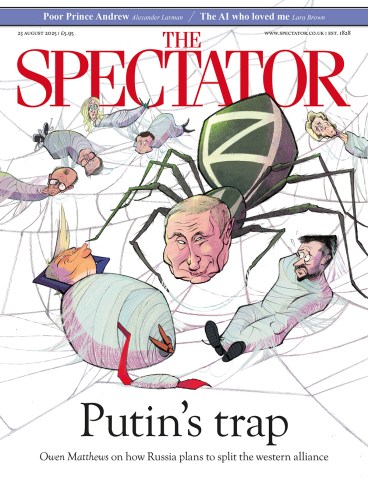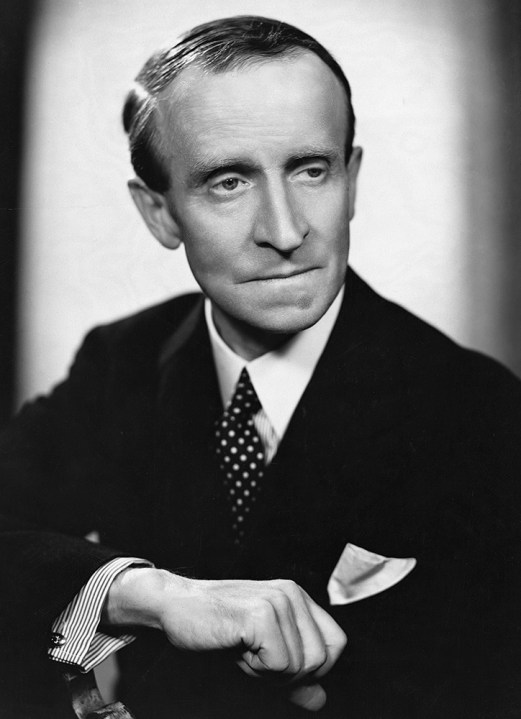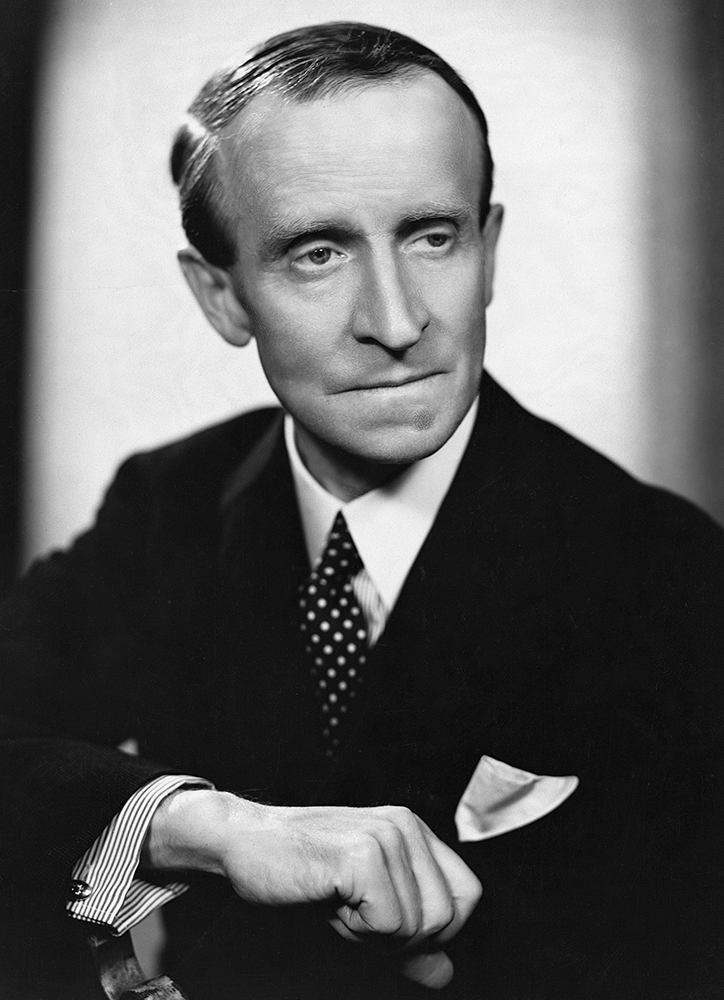
Amid the hullabaloo attending the 150th anniversary of the birth of John Buchan on 26 August – the walks and talks, the screenings of The 39 Steps, the think pieces in elevated publications, the new collection of essays – one facet of his extraordinary life is unlikely to get much of an airing. I am thinking of his work for The Spectator, little known now, yet crucial to his development as a writer.
In early 1900, The Spectator was enjoying success as a readable Liberal Unionist, free trade, anti-Home Rule, political and literary magazine, popular with educated opinion-formers of a mildly conservative bent. It was owned and edited by John St Loe Strachey, and it was run on a shoestring out of a tall house in Wellington Street, Covent Garden, with Meredith Townsend, the previous owner, continuing to write leaders into his old age, and Charles L. Graves, the assistant editor (and uncle of Robert), sharing the donkey work with Strachey.
My grandfather was 24 when his first article, ‘The Russian Imperial Ideal’, appeared in January 1900. But he was already the author of three published novels, an increasingly accomplished essayist, had seen three short stories published in the Yellow Book and was working on The Half-Hearted, a novel which featured the Great Game between Russia and Britain. He was reading for the Bar at the same time, so he kept quiet about his freelance journalism, which was easy enough to do since the articles were not signed. (Buchan devotees and scholars owe a great debt to Charles Seaton, the former librarian at The Spectator, for identifying his work, and to Dr Roger Clarke for setting the articles in their proper context.)
Buchan’s value to Strachey, apart from a long friendship, was that he could write about almost anything: from mountaineering to philosophy, from religion to poetry, from foreign affairs to history. His experience as a publisher’s reader for John Lane, which had begun when he was at Oxford, meant that he was also invaluable as a wide-ranging book reviewer. In return, he benefited hugely from collaborating with Strachey and Graves, developing an easier, more attractive prose style than was evident in his often rather mannered and self-consciously learned early essays. As he wrote in an article for the centenary issue of The Spectator in November 1928: ‘The kindly admonitions of Charles Graves suppled the joints of my style, which was rapidly becoming a dreadful compost of legal and philosophical jargon.’
In all, he wrote 805 articles for the magazine. (I have managed only 350 over four decades)
He also learned to work extremely fast. He soon began both to write his articles at Wellington Street and help to put the magazine together. He deputised for Strachey when he was away and, in early 1906, when Townsend retired, he abandoned the Bar and was taken on as ‘second assistant editor’, a post which he held for a year until his desire to be married and enjoy better-paid employment prompted him to join the publishing company Thomas Nelson and Sons. But he continued to contribute to The Spectator up until the first world war and occasionally thereafter, including a three-month stint writing ‘A Spectator’s Notebook’ in 1933, under the pseudonym ‘Auspex’. By this time he was famous and fêted as a novelist, public intellectual, politician and celebrity journalist. In all, he wrote 805 articles for the magazine. (I have managed only 350 over four decades.)
Charles Graves, who possessed a kind of genius for light verse, included a poem, ‘To John Buchan’, in a published collection of 1912:
… Ev’ry Tuesday morn, careering
Up the stairs with flying feet,
You would burst upon us, cheering
Wellington’s funereal street,
Fresh as paint, though you’d been ‘railing’
Up from Scotland all the night,
Or had just returned from scaling
Some appalling Dolomite…Pundit, publicist and jurist;
Statistician and divine;
Mystic, mountaineer and purist
In the high financial line;
Prince of journalistic sprinters –
Swiftest that I ever knew –
Never did you keep the printers
Longer than an hour or two.Then, too, when the final stages
Of our weekly task drew nigh,
You would come and pass the pages,
With a magisterial eye:
Seldom pausing, save to smoke a
Cigarette at half-past one,
When you quaffed a cup of mocha
And devoured a penny bun…
And devoured a penny bun…One of the advantages to Buchan of his association with The Spectator was that he developed an individual, attractive but literate style, disguising but not abandoning his excellent classical education. That and learning to marshal innumerable facts into a readable narrative, which augured well for his work as Director of Information and author of the 24-volume Nelson’s History of the War during the Great War.

And the subjects he covered sometimes found echoes in his fiction, notably the 1906 Zulu uprising in Natal province, which was led by a charismatic chief – not unlike the magnificent, doomed Reverend John Laputa of his novel Prester John, published four years later.
In 1906, towards the end of his time working at The Spectator, he reviewed a book, The King’s English, which gave him an opportunity to reflect on the journalist’s craft: ‘We do not expect to find lyrical prose in a Report or a Blue-book, nor do we seek in a leading article, written to edify the man in the train, the polished, jewel-like form of an essay composed for the delight of the man of leisure… But there is also a working model, consciously imperfect, a kind of compromise between colloquial speech and a more formal statement, which is, or should be, the standard for journalism… Good journalism ought to have many points of kinship with good talk, and some of the looseness and colloquialism of our common speech is not out of place.’ Almost 120 years later, those words still resonate.
John Buchan Reconsidered: Thirty-Nine Years of War and Peace 1901-1940, edited by Marcus Paul, is out now.








Comments